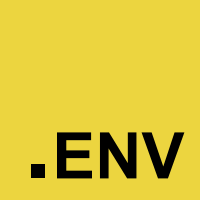A secure webpack plugin that supports dotenv and other environment variables and only exposes what you choose and use.
Installation
Include the package locally in your repository.
npm install dotenv-webpack --save
Description
dotenv-webpack wraps dotenv and Webpack.DefinePlugin. As such, it does a text replace in the resulting bundle for any instances of process.env.
Your .env files can include sensitive information. Because of this,dotenv-webpack will only expose environment variables that are explicitly referenced in your code to your final bundle.
Usage
The plugin can be installed with little-to-no configuration needed. Once installed, you can access the variables within your code using process.env as you would with dotenv.
The example bellow shows a standard use-case.
Create a .env file
// .env
DB_HOST=127.0.0.1
DB_PASS=foobar
S3_API=mysecretkey
Add it to your Webpack config file
const Dotenv = require('dotenv-webpack');
module.exports = {
...
plugins: [
new Dotenv()
]
...
};
Use in your code
console.log(process.env.DB_HOST);
Resulting bundle
console.log('127.0.0.1');
Note: the .env values for DB_PASS and S3_API are NOT present in our bundle, as they were never referenced (as process.env.[VAR_NAME]) in the code.
How Secure?
By allowing you to define exactly where you are loading environment variables from and bundling only variables in your project that are explicitly referenced in your code, you can be sure that only what you need is included and you do not accidentally leak anything sensitive.
Recommended
Add .env to your .gitignore file
Properties
Use the following properties to configure your instance.
- path (
'./.env') - The path to your environment variables. - safe (
false) - If false ignore safe-mode, if true load './.env.example', if a string load that file as the sample. - systemvars (
false) - Set to true if you would rather load all system variables as well (useful for CI purposes). - silent (
false) - If true, all warnings will be suppressed. - expand (
false) - Allows your variables to be "expanded" for reusability within your .env file. - defaults (
false) - Adds support for dotenv-defaults. If set to true, uses ./.env.defaults. If a string, uses that location for a defaults file. Read more at https://www.npmjs.com/package/dotenv-defaults.
The following example shows how to set any/all arguments.
module.exports = {
...
plugins: [
new Dotenv({
path: './some.other.env',
safe: true,
systemvars: true,
silent: true,
defaults: false
})
]
...
};
LICENSE
MIT






